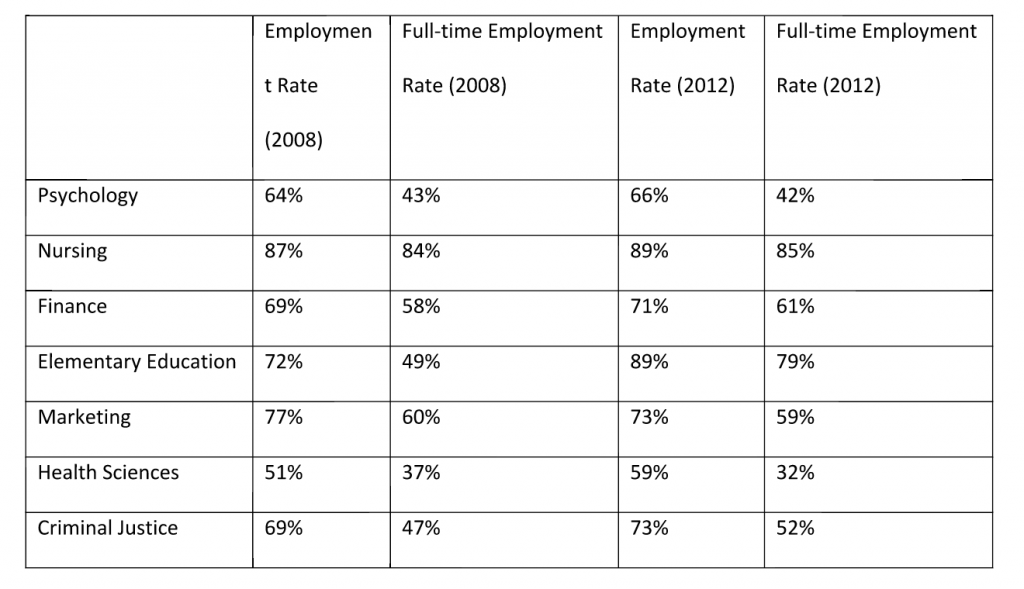UCF graduates saw an increase in both employment and full-time employment rates between 2008 and 2012.
Employment rates, to be exact, are the proportions of graduates that are able to find work within six months to a year of graduating.
In the most recent data from Beyond Education, a website for Florida graduates from public universities that makes information about employment available to parents and prospective students, UCF graduates have experienced a three percent rise in its general employment rates (from 67 percent to 70 percent) and a two percent rise in full-time employment rates (from 51 percent to 53 percent) between 2008 and 2012.
“Opportunities are going up. Employers are coming to us and we’re coming to employers,” said Lynn Hansen, the executive director of career services.
Hansen and career services are currently working on collecting their own career placement data from UCF graduates. Data for 2015 career placement rates will be available on the career services site after spring graduation.
While most majors saw even and steady increases, employment and full-time employment rates did not increase at the same rate across the board for every major. The hospitality major saw a higher-than-average increase of five percent in employment rate (from 79 percent to 84 percent) and an increase of three percent in full-time employment rate (from 63 percent to 66 percent).
“The hospitality business is wide open,” Hospitality Instructor Rick Florsheim said.
Florsheim identified the cause of the increasing placement rates as both an increased quality of student and an increased demand from employers.
“There’s a waiting list for employers who want to join our career fair,” Florsheim said.
Not all majors saw increases in placement ratings. Political science majors saw a three percent drop in employment rate (from 51 percent to 48 percent) and a two percent drop in full-time employment rates (from 32 percent to 30 percent).
Roger Handberg, a political science professor and a pre-law advisor, suggested that the drop in placement rates for political science majors could be because one of the types of careers political science majors try to pursue is weakening.
“I think what’s happening is a number of students are starting now to go to law school and then they look at the job prospects of being a lawyer and find that’s not as strong as it used to be,” Handberg said.
Some students gave their own explanations for what they thought the cause for the jump in employment rates was.
Therese Salas, a mechanical engineering major, thought that inventiveness could be the cause of the increased rates.
“Maybe we’re making more jobs,” Salas said.
Salas felt that when more jobs are invented then more jobs can be had.
Glenn Gates, a health services major in his junior year at UCF, had a different idea to explain why employment rates increased during this time.
“I feel that UCF is starting to make a name for itself,” Gates said.
Gates said that he thinks that UCF has started to develop a great reputation in the job market and that the university’s reputation could be playing a large role in the increase.
Whatever the cause may be, the numbers are showing that employment prospects for many, but not all, majors are improving.
With new, updated numbers coming by the end of the spring semester from career services one will be able to see how employment placement and full-time employment placement ratings have behaved in the time when the data has not been present.
Below are the employment placement and full-time placement rates according to Beyond Education for some of the most popular majors in terms of how many degrees are awarded by each major according to Institutional Knowledge Management at UCF.







